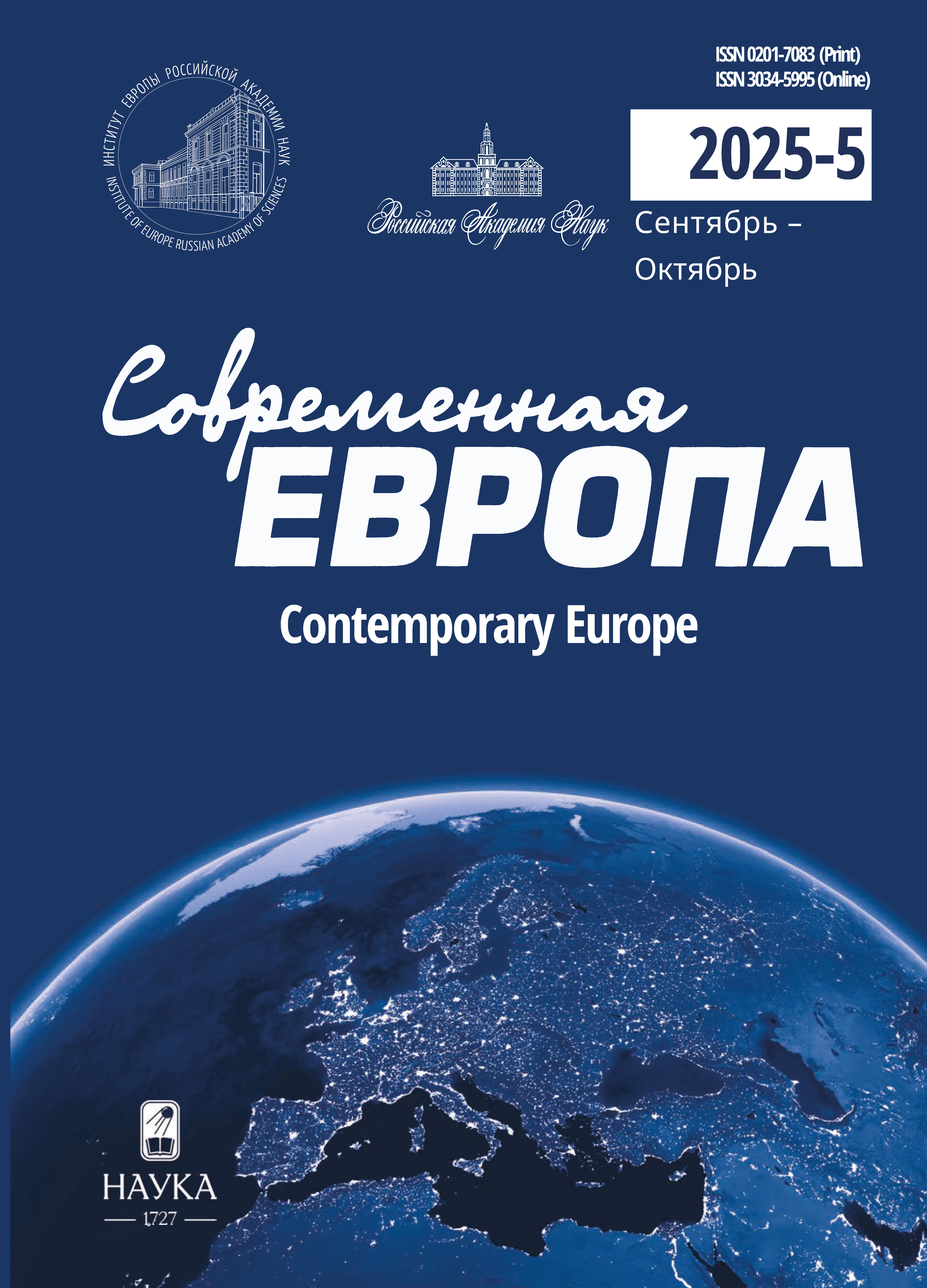A.A. Gromyko and security policy: setting up for Helsinki
- Authors: Sindeev A.A.1
-
Affiliations:
- Institute of Europe Russian Academy of Sciences
- Issue: No 4 (118) (2023)
- Pages: 183-194
- Section: Articles
- URL: https://rjsvd.com/0201-7083/article/view/652231
- DOI: https://doi.org/10.31857/S0201708323040113
- EDN: https://elibrary.ru/BXGYIX
- ID: 652231
Cite item
Abstract
The article continues the study of the role of the Minister of Foreign Affairs of the USSR A.A. Gromyko in the formation, development and maintenance of security policy, its principles and structural elements. The relevance of the article is determined by the importance of strategy and strategic thinking in modern foreign policy and diplomacy, their influence on interstate cooperation, the evolution and manageability of international relations. The chronological framework is limited to the events of 1971. The importance of these events allowed the author to identify and characterise some elements of the complex and controversial process of setting up for a future conference on security and cooperation in Europe, as well as to analyse A.A. Gromyko’s strategy of in this setting. The studied materials are presented in six subsections. The scientific novelty of the first subsection lies in the consideration of the logic and features of the diplomatic game of the West. The scientific novelty of the second subsection consists of five differences in the approaches of L.I. Brezhnev and A.A. Gromyko, who could help or hinder the defense of the interests of the Soviet Union at a future conference. The scientific novelty of the third subsection lies in the consideration of the Soviet position on a conference on security and cooperation in Europe by Western diplomats. The scientific novelty of the fourth and fifth subsections was determined by the proof of the hypothesis that A.A. Gromyko had two plans - in case the conference was convened or postponed. In the fourth and fifth subsections, the author presents the main activities and expected results of «Plan A» and «Plan B». The sixth subsection is devoted to conclusions that can be classified into historical conclusions (conclusion 3) and historical and political conclusions (conclusions 1-2, 4-5). The results obtained make it possible to test hypotheses related to the influence of the personal factor (long-term holding of a responsible position; constant strengthening of influence, authority and opportunities) on foreign policy and evolutionary processes in the systems of international relations. In relation to 1971, the author discovered Soviet version of the “magnet theory” developed by A.A. Gromyko's. The sources of the article are published documents of the Foreign Office of the Federal Republic of Germany, the use of which can be explained methodologically. It was important for the author to conduct the analysis on the basis of the foreign partners' assessment of the statements made by the Soviet Foreign Minister during official negotiations (outer reflection). The author's reasoning should be understood in the context of his earlier article in the journal.
About the authors
Alexey Aleksandrovich Sindeev
Institute of Europe Russian Academy of Sciences
Email: a_sin74@mail.ru
Moscow, Russia
References
- Громыко Ал.А. (2019) Дипломатия позитивного действия. "Война между государствами - великое зло": к 110-летию А.А. Громыко. Общ. ред. Ал.А. Громыко. Весь мир, ИЕ РАН, Москва. С. 84-102.
- Громыко Ан.А. (2009) Андрей Громыко: Полет его стрелы. Воспоминания и размышления сына. Научная книга, Москва. 444 с.
- Загорский А.В. (2005) Хельсинкский процесс: переговоры в рамках Совещания по безопасности и сотрудничеству в Европе, 1972-1991. Права человека, Москва. 447 с.
- Филитов А.М. (2023) 1970-1972 и 1989-1990 гг. в советско-германских отношениях: сравнительный анализ. Россия и современный мир. № 1. С. 137-152. doi: 10.31249/rsm/2023.01.09
- Biermann H. (2012) U.S. Perceptions of the CSCE Process. From Helsinki to Belgrade: the first CSCE follow-up meeting and the crisis of détente. Ed. by V. Bilandžić, D. Dahlmann, M. Kosanović. V&R Unipress, Bonn Univ. Press, Göttingen, Germany. Р. 143-162.
- Böcker C. (2010) Die Europäische Politische Zusammenarbeit - Struktur, Auftreten auf den KSZE-Verhandlungen, Mitwirkung bei der Schlussakte von Helsinki: Die aktive Teilnahme der EPZ-Staaten bei den KSZE-Verhandlungen und deren damit einhergehender Einsatz für die Menschenrechte haben zum Zerfall des Ostblocks beigetragen. GRIN Verlag, München, Germany. 17 p.
- Hildebrand K. (2012) The Cold War as Détente. The Phenomenology of the World Community of Nation States in the 1970s. From Helsinki to Belgrade: the first CSCE follow-up meeting and the crisis of détente. Ed. by V. Bilandžić, D. Dahlmann, M. Kosanović. V&R Unipress, Bonn Univ. Press, Göttingen, Germany. Р. 25-38.
- Kunter K. (2000) Die Kirchen im KSZE-Prozeß 1968-1978. Kohlhammer, Stuttgart, Germany. 262 p.
- Peter M., Wentker H. (ed.) (2012) Die KSZE im Ost-West-Konflikt: internationale Politik und gesellschaftliche Transformation 1975-1990. Oldenbourg, München, Germany. 344 p.
- Selvage D., Süß W. (2019) Staatssicherheit und KSZE-Prozess: MfS zwischen SED und KGB (1972-1989). Vandenhoeck & Ruprecht, Göttingen, Germany. 757 p.
- Staden B. (1990) Der Helsinki-Prozess. Oldenbourg, München, Germany. 66 p.
Supplementary files











